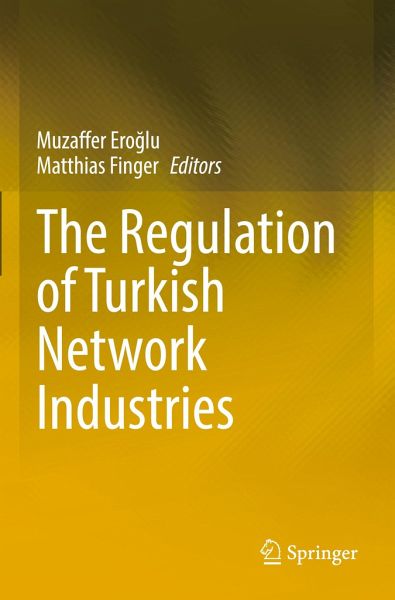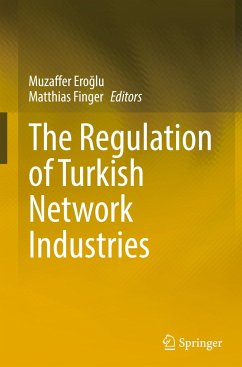
The Regulation of Turkish Network Industries
Versandkostenfrei!
Versandfertig in 6-10 Tagen
83,99 €
inkl. MwSt.

PAYBACK Punkte
42 °P sammeln!
This book brings together academics and experts on Turkish network industries. It provides fundamental information on the current developments regarding regulation of the different network industries in Turkey. Turkey has gone through a liberalization process in most of the network industries during the past 20 years. In most of them, independent regulatory authorities have been established, but some network industries are still remaining under the central or local government regulatory regime. As a result, there is now a very complicated regulatory regime in place which makes Turkey's regulat...
This book brings together academics and experts on Turkish network industries. It provides fundamental information on the current developments regarding regulation of the different network industries in Turkey. Turkey has gone through a liberalization process in most of the network industries during the past 20 years. In most of them, independent regulatory authorities have been established, but some network industries are still remaining under the central or local government regulatory regime. As a result, there is now a very complicated regulatory regime in place which makes Turkey's regulatory system difficult to understand for practitioners, academics, lawyers, researchers and investors.
This book offers unique insight into Turkey's regulatory regime in various network industries. It also offers a historical background to regulation, a description of the current regulatory regimes, as well as an analysis of the foreseeable evolutions. The bookcovers all the important network industries in Turkey. No similar book is available on the market to date. Moreover, the book provides an extensive analysis of the current regulatory regimes in the energy, the transport, and the telecommunications industries.
This book should be of interest to anyone wishing to understand Turkish regulation and will be very helpful handbook to researchers who are interested in regulation of network industries not only in Turkey but also in other developing countries, as Turkey is quite representative of other emerging countries. Readers will acquire a thorough understanding of the state of play of the Turkish network industries and their regulation.
This book offers unique insight into Turkey's regulatory regime in various network industries. It also offers a historical background to regulation, a description of the current regulatory regimes, as well as an analysis of the foreseeable evolutions. The bookcovers all the important network industries in Turkey. No similar book is available on the market to date. Moreover, the book provides an extensive analysis of the current regulatory regimes in the energy, the transport, and the telecommunications industries.
This book should be of interest to anyone wishing to understand Turkish regulation and will be very helpful handbook to researchers who are interested in regulation of network industries not only in Turkey but also in other developing countries, as Turkey is quite representative of other emerging countries. Readers will acquire a thorough understanding of the state of play of the Turkish network industries and their regulation.














